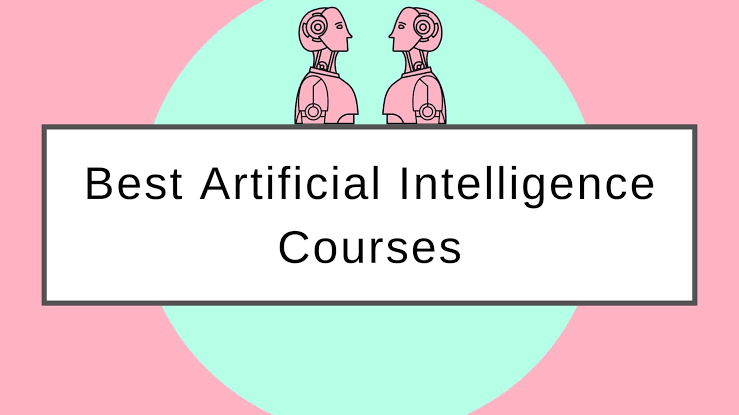As the global demand for AI skills continues to rise, both individuals and organizations are seeking comprehensive, up-to-date education on artificial intelligence. In 2025, the industry has grown far beyond academic theory. Employers now expect proficiency in machine learning, natural language processing, neural networks, and AI ethics.
Fortunately, the landscape of online and offline learning has expanded to meet this demand. From Ivy League institutions to specialized tech platforms, a variety of AI courses are now accessible to learners of all backgrounds. The following list explores the top 10 artificial intelligence courses currently shaping the future of learning in this dynamic field.
10. Elements of AI by the University of Helsinki
This free, beginner-friendly course is designed for non-technical learners who want to understand the basics of artificial intelligence. Hosted by the University of Helsinki in collaboration with Reaktor, the Elements of AI course covers foundational topics such as algorithms, machine learning, neural networks, and societal implications. As of 2025, it has reached over a million students worldwide. It remains popular due to its engaging format and inclusive approach, making it ideal for professionals outside the tech industry who still want to grasp AI’s core principles.
9. Introduction to TensorFlow for Artificial Intelligence by DeepLearning.AI on Coursera
This course, part of the TensorFlow in Practice specialization, provides practical knowledge for developing AI models using TensorFlow. Offered through Coursera by DeepLearning.AI and taught by Laurence Moroney, the course includes real-world coding assignments, image recognition tasks, and neural network creation. It is best suited for learners with some programming background. As of mid-2025, it remains one of the top-rated courses for hands-on AI development using one of the most widely used frameworks in machine learning.
8. Professional Certificate in Computer Science for Artificial Intelligence by HarvardX (edX)
Offered through edX by Harvard University, this certificate program introduces learners to computer science principles through the lens of AI. It includes courses like CS50 and Introduction to Artificial Intelligence with Python. Students gain foundational coding skills, explore deep learning, and apply AI concepts through real projects. In 2025, the HarvardX program is still respected for its rigorous curriculum and real-world applications, especially for those who want a deep academic grounding in AI.
7. AI for Everyone by Andrew Ng on Coursera
Designed for non-engineers, this course breaks down artificial intelligence concepts in an accessible and strategic way. Andrew Ng, one of the most influential figures in AI education, teaches this course as a gateway to understanding how AI impacts business, society, and future workforces. It covers ethics, AI adoption, and organizational readiness. While technical coding is not required, this course remains a must-take in 2025 for executives, managers, and students wanting a broader perspective on AI implementation.
6. Machine Learning Specialization by Stanford University on Coursera
This specialization, also led by Andrew Ng, dives into the technical aspects of machine learning. It includes supervised learning, unsupervised learning, model evaluation, and neural networks. It is considered a classic in the field and has been updated recently to reflect current advancements as of 2025. For aspiring AI professionals and data scientists, this course provides solid foundations in mathematical models and practical applications. It’s highly recommended for those looking to transition into an AI-focused career.
5. Artificial Intelligence Nanodegree by Udacity
Udacity’s AI Nanodegree remains one of the most comprehensive, project-driven programs available online. With a strong focus on real-world implementation, students work on projects such as building a chatbot, implementing search algorithms, and constructing game-playing agents. Industry-relevant tools like NumPy, PyTorch, and OpenAI Gym are included. In 2025, Udacity’s nanodegree still stands out for its career-oriented design, mentorship support, and employer partnerships that enhance job-readiness in the AI job market.
4. Advanced Machine Learning Specialization by National Research University Higher School of Economics on Coursera
This intensive specialization is aimed at learners with previous experience in AI or data science. Topics include reinforcement learning, computer vision, natural language processing, and Bayesian methods. The course has academic depth but is also rich in practical implementation. Updated frequently, its relevance in 2025 reflects the growing demand for specialists with advanced knowledge and the ability to build scalable AI solutions. It’s particularly recommended for those aiming to work on high-level machine learning problems or academic research.
3. AI Programming with Python by Udacity
This beginner-to-intermediate course focuses on building AI applications using Python. Learners are introduced to essential programming concepts, NumPy, pandas, Matplotlib, and object-oriented programming. They then progress to building neural networks and working with TensorFlow. It is structured with interactive quizzes, projects, and mentor feedback. In 2025, it remains a top choice for individuals wanting to bridge the gap between coding and AI concepts without overwhelming complexity.
2. Deep Learning Specialization by DeepLearning.AI on Coursera
DeepLearning.AI’s specialization covers a wide range of topics within deep learning, including CNNs, RNNs, transformers, and optimization techniques. Led by Andrew Ng, this course offers a blend of theory and coding assignments using Python and TensorFlow. Its emphasis on deep learning applications such as language translation, image classification, and recommendation systems makes it highly relevant. In 2025, with deep learning becoming more integrated into consumer and enterprise technologies, this specialization remains a cornerstone in any AI learner’s journey.
1. MIT Professional Education: Artificial Intelligence: Implications for Business Strategy
This course by MIT Sloan and the MIT Computer Science and Artificial Intelligence Laboratory (CSAIL) is geared toward business leaders and managers. It focuses on how AI can be leveraged for business transformation, competitiveness, and innovation. With case studies from real companies and frameworks for AI deployment, it provides strategic insight rather than technical depth. As of June 2025, this course is considered one of the most prestigious executive education programs in the AI space, ideal for those responsible for AI strategy in their organizations.
